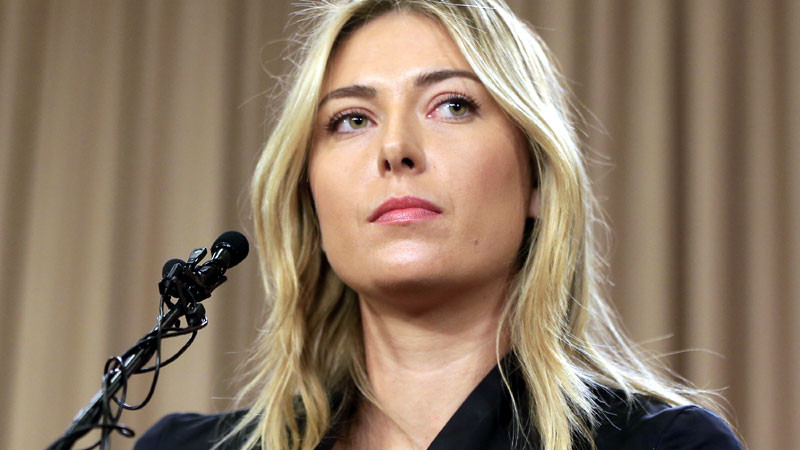There is a possibly more insidious reality behind Maria Sharapova’s testing positive for drug use during the Australian Open—one that is right down the alley of Filipino behavior.
The 28-year-old tennis poster princess tested positive for the banned substance meldonium. In an effort to seize control of the narrative of her looming suspension, the Russian star announced her flunked test in a press conference before any news outlet could get hold of the results.
Sorry, Sharapova said, it was a mistake. She explained that neither she nor anyone from her high-priced entourage had clicked on the link sent by World Anti-Doping Association (Wada) officials via e-mail announcing this year’s additions to the list of “punishable” substances. (Allow us to correct a misimpression—meldonium was already a banned substance late last year, but carried penalties for its use only this year). Sharapova had been taking meldonium for “almost a decade” to treat a variety of, according to her, legitimate health concerns.
So masterful was Sharapova’s hijacking of the narrative that she escaped scrutiny as to why, for a superstar based in the United States, she sought treatment for her health concerns in the form of a drug that isn’t even sold in America. Meldonium is manufactured only in Latvia and can only be bought in Baltic countries.
Critics, including some of her peers in the professional tennis tour, claim that Sharapova had been using the drug for the reason it was specifically banned: its ability to increase oxygen uptake, therefore giving athletes an extra performance boost. She has stood firm that she was ignorant of the substance’s promotion to the Wada watch list.
The question brings to light an awkward possibility. Both sides could be actually right—that Sharapova knew of meldonium’s performance-enhancing properties and used it for as long as it did not make the Wada list. And all that hiding behind her health problems has finally caught up with her in the form of an unchecked e-mail.
This alternate possibility flies closer to home for Filipinos, especially since we live in a sporting culture where athletes and officials have been known to push rules to the limit—and sometimes clandestinely beyond it—when it comes to seeking whatever small advantage they can get in the competitive arena. Age-tampering controversies, faked documents of Filipino lineage, and grade-doctoring among varsity players are just a few examples.
It is noteworthy to mention that we haven’t had major cases of drug offenses—yet. Athletes who have competed in international arenas like the Olympics and the Asian Games have breezed through Wada protocols. Our most scrutinized athlete is Manny Pacquiao, who was dogged by accusations of using performance-enhancers in the past. But Pacquiao has dodged those accusations by coming up clean each time he is tested.
But this is not to say that we should not tighten our own protocols. Wada has had to deal with unscrupulous people finding more and more inventive ways to mask enhancers, and it goes without saying that our officials need a lot of catching up to do when it comes to ensuring clean athletes.
And the warning should be heeded now.
Sharapova’s case, her fall from grace, proves that no one is as clean as they seem, and that it is only a matter of time before athletes or officials hereabouts begin entertaining the idea of using performance-enhancers.
After all, the scourge of performance-enhancing drugs comes from one root: The punishment is not enough of a deterrent for the crime, what with the rewards outweighing the risk. A look at Sharapova’s financial empire shows that. Whatever the final punishment will be for one of tennis’ biggest icons, her bank account isn’t going to take that heavy a hit.
Before we even make the mistake of falling to that trap of glossing over the pitfalls and focusing on the prize, we must institute a modern drug policing body with enough sophisticated equipment and know-how to make sure no one of our athletes is ever led down that path—either by choice or by mistake.
